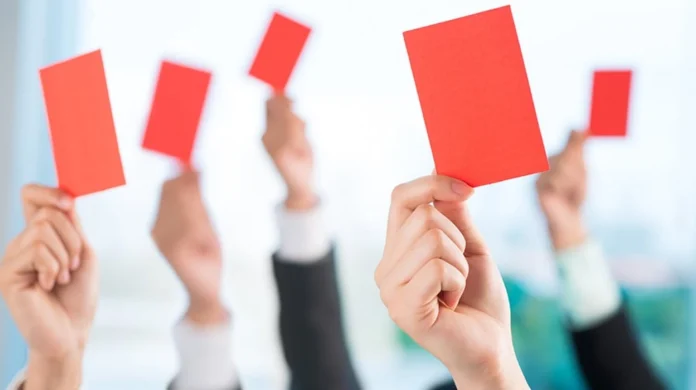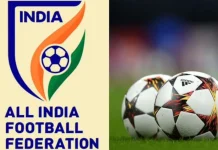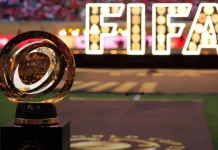As the 2026 FIFA World Cup and the 2028 Olympics in Los Angeles approach, once again, the integrity of mega-sporting events is the focus of international spotlight interest. An already anticipated source of historic levels of revenue and worldwide participation, such tournaments are also a prime target of criminal activities. The 2026 world cup, which will be jointly hosted by the United States, Canada, and Mexico, will have 48 teams and more than 100 matches thus the biggest world cup in history. The scale itself expands the area of corruption in procurement, operations, sponsorship, betting markets, and regulatory enforcement.
The United Nations Office on Drugs and Crime (UNODC) has in turn revised its anti-corruption framework and released detailed guidelines specifically applied to major sporting events. These are based upon past G20 principles but extend into event-specific, practical protection. The UN now prevents financial surveillance in real-time, integrity audits, transparency of a contractor, whistleblower safety, and multinational collaboration have become the foundation of the prevention strategy. The attempt is an indication of an understanding that earlier scandals such as the ones that happened to FIFA in 2015 and those to the officials of the IOC in several cycles revealed not just a situation of corruption but rather institutional flaws in oversight.
Key risk areas: Illegal betting, procurement fraud, and cross-border crime
The revenue of legal sports betting in 2022 during the World Cup is estimated at more than $35 billion, and it is expected to grow in 2026 as North America is a new market. Simultaneously, criminal betting systems particularly online and cryptocurrency ones are likely to flourish and introduce the two-fold difficulty of regulation and enforcement.
Weak regulation in jurisdictions around North America, the UNODC has cautioned, would permit criminal groups to seek loopholes in enforcement, especially in spot-betting and micro-event manipulation. These schemes, where bets are placed on granular match events such as the first throw-in or yellow card, are increasingly difficult to monitor and easier to fix without broad detection. The guidelines recommend data-sharing partnerships between betting companies and regulators and the establishment of dedicated anti-match-fixing units ahead of the tournaments.
Procurement, contracts, and the risk of fraud
Stadium construction, security systems, media infrastructure, and transport logistics represent billions in public and private investment. This historically lucrative environment has proven susceptible to procurement fraud, collusive bidding, and under-the-table commissions. The UN’s 2025 update emphasizes digital traceability, requiring all vendors to register through open procurement platforms and undergo third-party integrity screening.
In addition, the guidelines urge host nations to implement rolling financial reviews and establish real-time project dashboards accessible to independent observers. These measures are intended to mitigate the risks of budget inflation and “phantom” services that drain funds with little oversight. While such controls have been discussed in previous Olympic and World Cup cycles, this marks the first formalized global standard backed by UN endorsement.
The multi-stakeholder challenge: implementation and integrity
The UNODC acknowledges that no single actor can independently prevent corruption at this scale. Rather, the framework foresees multi-stakeholder networks between national police agencies, financial intelligence units, sports federations, compliance officers and civil society watchdogs. The intergovernmental memorandums are promoted, especially in the hosting of the world cups such as the world cup in 2026 in which jurisdictional complexity heightens.
Nevertheless, Transparency International and other advocacy groups have complained about disproportionate progress in implementation. As Canada and Mexico, along with the different states maintained in the U.S., have varying legal and regulatory landscapes, multiple discrepancies in access to data and enforcement authority may impede cross-border collaboration. They underline the importance of closing mutual control mechanisms and demand transparency of the population concerning procurement data, the results of investigations, and contracts.
Whistleblower protection and media transparency
To supplement institutional implementation, the guidelines of the UN encourage more robust whistleblower policies and guarantees to journalists. Protecting whistleblowers is established as an uncompromising standard of event integrity. These are provision of safe reporting channels, anonymity under the law and an assurance of retaliation. Such safeguards were more open or non-functional in the past scandals and brought reputational damage and legal immunity in major infrastructure and sponsorship corruption lawsuits.
According to the arguments of civil society actors, anti-corruption activities should not be restricted to financial protection. They also promote the establishment of free ombudsman offices and open forums whereby the sportsmen, fans, and local people can voice ethical issues on matters relating to governance, labor rights and misappropriation of government resources.
Lessons from history and the evolving risk landscape
An array of precedents in institutional failure and structural vulnerability can be found in the scandals that ensued the previous World Cups in South Africa (2010), Brazil (2014), and Russia (2018) and Olympic Games in Sochi (2014) and Rio (2016). Bid-rigging, inexplicable financial flows, the lessons are obvious: accountability should be proactive, not reactive.
The UN’s strategy for 2025 shifts from generic compliance protocols to “laboratory-style” experimentation, treating each mega-event as a site to refine anti-corruption tools. For the first time, UNODC has recommended that host cities maintain legacy oversight bodies for five years beyond the event, ensuring post-event audits and continuity in financial and ethical compliance.
The road ahead for sports integrity
With under a year remaining until the opening match of the 2026 World Cup, many of the UN’s recommendations are now entering their operational phase. Los Angeles preparatory committees are also examining the means of integrating the new anti-corruption protocols into the early Olympic planning. In the U.S., federal agencies (including the Department of Justice and the Financial Crimes Enforcement Network (FinCEN)) have expressed their willingness to integrate UN-supported procedures into domestic enforcement models.
Human rights advocates emphasize that the fight against corruption cannot exist in isolation of greater accountability and social justice targets. They claim that the guidelines will be successful only in case they are backed by inclusive governance, ethical procurements, and open communication with the affected communities. To them, integrity is more than compliance–it is how sport is relevant to the common good.
The magnitude and publicity of the 2026 world cup and the 2028 LA Olympics is something that can be utilized to bring about a world wide change in the approach to corruption. The issue of whether the UN anti-corruption guidelines 2026 World Cup Olympics will fulfill its promises will rely not only on the institutional will but also on the attention of media and civil society and the international community. The years ahead would decide whether or not mega-events would become examples of ethical governance or continue to be subject to the same scandalous cycles they are supposed to avoid.












